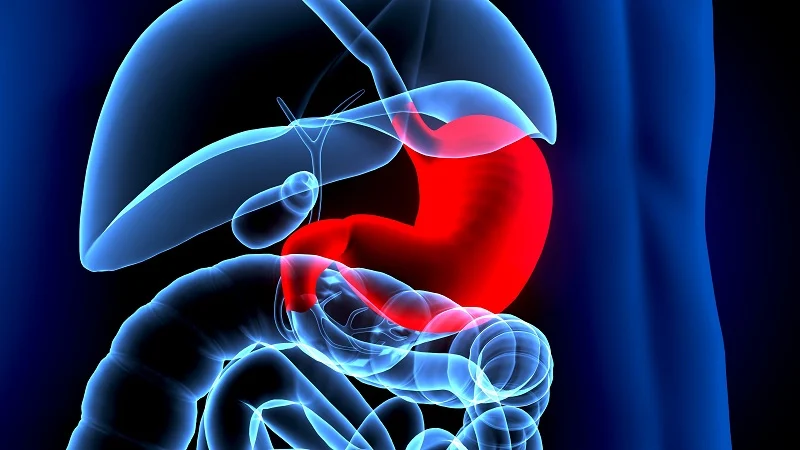
Introduction: Understanding Gastroparesis and its symptoms
Gastroparesis, a digestive disorder marked by sluggish stomach emptying, manifests through distressing symptoms like nausea, vomiting, bloating, and abdominal pain. Yet, its ramifications aren't confined solely to gastrointestinal discomfort. The disorder's systemic implications permeate overall health and wellbeing. Nutrition absorption suffers due to delayed digestion, leading to malnutrition and weight loss. Fluctuating blood sugar levels pose a challenge for individuals with diabetes, exacerbating their condition. The inability to properly process food can trigger mental health concerns, including anxiety and depression. Moreover, gastroparesis disrupts daily life, affecting productivity and social interactions. Understanding these broader effects is crucial for comprehensive management and support of individuals grappling with gastroparesis, emphasising the necessity for multidisciplinary approaches that address both physical and psychological aspects of the condition.
Causes: Factors contributing to Gastroparesis development
Gastroparesis, a condition marked by delayed emptying of the stomach, can arise from diverse triggers. For diabetic individuals, it often stems from vagus nerve impairment, crucial for regulating stomach contractions. Neurological disorders, surgeries affecting the stomach or vagus nerve, and certain medications can also incite its development. Beyond diabetes, autoimmune diseases, viral infections, and psychological elements like stress and anxiety may contribute. The vagus nerve, responsible for transmitting signals between the brain and digestive system, plays a central role in gastroparesis onset, especially in diabetes, where nerve damage is prevalent. This multifaceted interplay underscores the complexity of gastroparesis aetiology, highlighting the need for comprehensive management strategies addressing both physiological and psychological factors to alleviate symptoms and improve patients' quality of life.
Effects: Impact on overall health and wellbeing
Beyond its immediate symptoms, gastroparesis profoundly affects overall health and wellbeing. Poor absorption of nutrients due to delayed gastric emptying can lead to nutritional deficiencies, precipitating malnutrition and weight loss. Chronic vomiting and dehydration, common complications, worsen these problems, potentially causing electrolyte imbalances and muscle weakness. Additionally, gastroparesis can have a significant impact on mental health, contributing to anxiety, depression, and reduced quality of life. The combination of physical and psychological challenges can create a vicious cycle, further impairing gastrointestinal function and exacerbating symptoms. Managing gastroparesis requires a comprehensive approach addressing both the physical and emotional aspects of the condition to improve outcomes and enhance overall wellbeing.
Diagnosis: Methods for identifying Gastroparesis
Diagnosing gastroparesis typically entails a thorough assessment involving a review of the patient's medical history, a comprehensive physical examination, and a series of diagnostic tests. Gastric emptying studies are commonly employed, wherein patients ingest a meal infused with a trace amount of radioactive material, enabling imaging to monitor the transit of food within the digestive tract. Additionally, upper endoscopy, gastric manometry, and breath tests may be utilised to eliminate the possibility of other gastrointestinal disorders. These diagnostic modalities collectively provide clinicians with crucial insights into the functioning of the stomach, aiding in the accurate identification and management of gastroparesis.
Treatment: Options for managing symptoms and improving quality of life
Gastroparesis, a condition marked by delayed stomach emptying, lacks a definitive cure, but several strategies aid symptom management and enhance patients' daily lives. Dietary adjustments play a pivotal role, with smaller, frequent meals and avoidance of hard-to-digest foods mitigating discomfort. Medical interventions, including prokinetics to facilitate stomach emptying and antiemetics to quell nausea and vomiting, constitute frontline treatments. For severe cases resistant to conservative measures, surgical interventions emerge as viable options. Gastric electrical stimulation and pyloroplasty, though reserved for select scenarios, can offer substantial relief by either stimulating stomach contractions or widening the pyloric valve, respectively. Ultimately, a multidisciplinary approach, involving dietary guidance, medication management, and potential surgical consultation, empowers individuals in their journey with gastroparesis, enhancing their quality of life amidst the condition's challenges.
Complications: Potential risks associated with untreated Gastroparesis
Untreated gastroparesis, a condition characterised by delayed stomach emptying, poses various risks if left unmanaged. Severe dehydration and malnutrition can ensue due to inadequate nutrient absorption. Diabetic patients face the added challenge of erratic blood sugar levels, complicating their condition further. Persistent vomiting associated with gastroparesis may result in esophageal damage, potentially leading to esophagitis, strictures, or the development of Barrett's oesophagus. Furthermore, gastroparesis heightens the risk of bacterial overgrowth within the digestive tract, which can trigger infections and exacerbate existing gastrointestinal issues. These complications underscore the critical importance of timely diagnosis and effective management strategies to mitigate the adverse outcomes associated with gastroparesis.
Conclusion: Importance of holistic approach to treatment
In conclusion, gastroparesis presents as more than merely a stomach-related ailment; it manifests as a multifaceted disorder with implications reaching beyond the gastrointestinal system. Adopting a holistic treatment strategy is imperative, encompassing not only symptom management but also the identification and mitigation of underlying causes and possible complications. Collaboration with healthcare providers is crucial in navigating this complex condition. Embracing healthy lifestyle practices, including dietary modifications and regular exercise, can significantly contribute to symptom alleviation and overall well-being. Moreover, exploring diverse treatment modalities such as medication, dietary adjustments, and possibly surgical interventions can offer personalised solutions tailored to individual needs. By diligently pursuing comprehensive care and actively engaging in treatment plans, individuals afflicted with gastroparesis can enhance their quality of life and foster a sense of control over their health outcomes. By shedding light on the systemic impact of gastroparesis, we can raise awareness and promote better understanding and support for individuals living with this challenging condition.